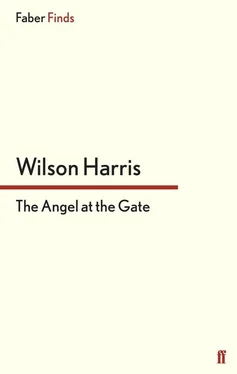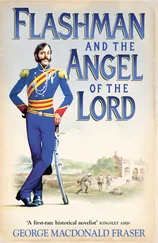Which alternative she chose depended on the measure of toy she became. She could — at one stroke — select a square inch of mirror possessing all hostages to the devil and imprint it with a kiss until third-party child-hostage of the family of man mirrored all unfulfilled pledges and hypnotic abuse.
Sebastian apologized to Stella for his behaviour the following morning and sought to please and placate poor John by making faces of saviours and kings he had liberated from prison, the faces of millionaires, astronauts, coalminers, even barbers and emperors, all in his name, his (John’s) body. John bided his time. His troubled innocence, the price he had been for so many liberations, needed now to invest in a bank of flowers. He wiped away the faces Sebastian invited him to mimic and drew him into the street. Sebastian was taken by surprise. He suggested that they go to Paddington Station where the great trains run. John refused to be bribed by sweets and promises. With a sweep of his hand he insisted on another rich train, rich fate.
The emphasis on rich was consistent with Sebastian’s adoration and unconscious parody of liberated millionaires but because of the troubled innocence of a child, it was all the more compelling, all the more layered with naïve traces of angelic moral and subtle grandeur. Wealth or riches had achieved great things, aeroplanes, nuclear rockets, fantastic buildings, fast trains, ships, cathedrals, etc. etc. etc., but in essence it seemed now even to blind Sebastian — as John thumped him with his small fist — that all these magnificent conceptions were native to a child’s genius. They were — whatever their splendour — still divided from the lighthouse of maturity no one had yet founded in paradise. And therein lay — in the irony of hostage to the devil who commanded the globe — the memories of hypnotic family, hypnotic abuse, upon which great architects and scientists, great composers draw as they too, like John, wave a hand, strike the ground, strike up the orchestra of a train of flowers to match every gamble of soul.
With a sinking heart Sebastian was being tugged and pulled by John along Dolphin Street. They did not have far to go. The pale November sun painted the houses on their side of the street with glimmering pearl and threw the other side into chill and luminous shadow. There was no wind and the sun in which they walked was warm as a light rabbit or a piece of cheese on toast. They came to the garage John had in mind. A procession was emerging, it crossed the pavement at a snail’s pace and moved on to the street. A faint chime of bells rang far across the city.
“Millionaire,” said John, pointing to the great black hearse banked high with flowers that seemed to Sebastian’s hollow senses remote or faded like squares of toilet paper stuck together with ash. Sebastian felt the faintest, yet stifling, burden, he seemed to see unseeingly his own addiction laid bare before him; to see unseeingly as if the eyes of ashen bell in his head were open in the other’s head, whoever the other was in the coffin in the hearse. It was faintest awakening, faintest baton, faintest cracked coffin (rather than resurrection) that the angel of liberated wealth invoked. And it was still shrouded in parallel wheels of oblivious innocence and guilt (his guilt and John’s troubled innocence). John was delighted, convinced it was all a celebration; it was as if he knew (though how could he know?) that the hearse possessed millionaire hostage to faintest awakening, faintest orchestra of the unemployed, faintest descent into the funeral of an age.
If John were not rabbit-child, cheese-child, paradise-child, to be consumed in the games they played, Sebastian would have sworn that he knew , that he had planned the cultivation of a rich procession to mimic or strike back at his (Sebastian’s) hollow games of wealth and theft of genius. That theft required the foundations of the coffin, that the scales should not fall from one’s eyes until the faint time was ripe to re-visit paradise. When would that be? Sebastian looked at John but John kept his own counsel. The procession now began to roll. Each car was a sleek composition of chariot-and-cat. The hearse possessed wheels to accentuate the deaf road on which it ran even as it incorporated the blind springs of animal grace one associates with sombre countenance, purring fate, angelic chauffeur.
“Holy, oblivious chauffeur,” Sebastian thought he heard John say. But that was impossible. The faint bell had ceased to chime but an invisible presence peered over the rim of the coffin and waved to Sebastian.
*
Sebastian waved back from his cell, the last day in November, meditating upon lavatory codes he had compiled over the month that bore upon the debts he was accumulating, the credit he had received, unpaid bills, for drugs.
There were three spidery entries for the 13th, the 21st and the 29th that ran as follows:
90 minute script, White City
180 minute script, White City
90 minute script, White City, cancell’d
Minute actually signified day , and 90 days’ supply Sebastian knew would last for scarcely a fortnight. Script was code for prescription but in the underground market it implied high-priced scene or promised money.
White City implied the pavement opposite the greyhound stadium close to the Broadcasting Studios in White City. That was the rendezvous where Sebastian met his producer or middleman. Cancell’d implied that he was up to his eyes and ears in debt (he owed his producer close to fifty pounds and had had to cancel his last script). Thus it was clear that Sebastian had paid dear to the underground market for speed.
The slide into debt had started when he had forfeited prescriptions from his GP after a quarrel and had thus lost his normal supply at the normal rate or price. The facts were that as a porter on night duty at the Victoria Maternity, he had successfully appealed to his doctor or GP for a prescription by explaining how starved he was for sleep during the day by the fiendish racket that a road repair gang was making just beyond his bedroom window. He needed a rich speed to face the night, the abyss of the night, after a snail’s crawl of sleep during the day; eyes pounded and barely shut when it was time for him to open them to the last shades of the sun.
In any event — even if he had not lost his job at the hospital — the gang had long since dispersed, and the funeral, long-suffering faces he turned upon his doctor, long-suffering, coffined day husband, long-suffering, coffined night porter, were of no avail. His deception had worn thin when the doctor happened to drive through Dolphin Street at noon and to come upon no sign whatever of the mysterious road gang, the mysterious grave diggers of Sebastian’s exasperated daytime soul.
Sebastian was awakened rudely by Stella’s voice just beyond the lavatory door. “Sebastian, Sebastian, how long are you going to remain in there? I need to have a word with you before I leave for the market.”
Sebastian hastily pulled up his trousers, pulled the chain, and shot through the door BANG. His alacrity made it clear to Stella that he was high. Not high like Mary’s Father Marsden upon whom a great spirit leaned to patrol the globe, but high in an inverted sense as if he (Sebastian) ran on the edge of numinous, Alfred Hitchcock coffin or pit, yet stood upon a pole held aloft by a devil in the depths of that coffin, a pole on which he danced with numb toes, and skilfully, however blindly, preserved himself from the swirling grave beneath.
The hierarchies between Marsden’s freedom and swirling depths of possession were multifold, both Mary and Stella knew. Sebastian’s high — in point of fact — stood above other stilts or highs or needles’ points in the coffin of space. Each high presumed that it stood on the lip of the coffin however deep it may already have fallen … that it waved at passers-by rather than sink into oblivion.
Читать дальше












